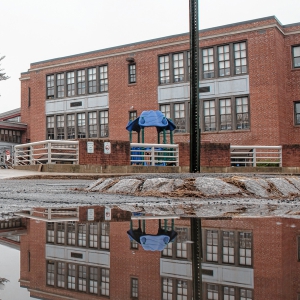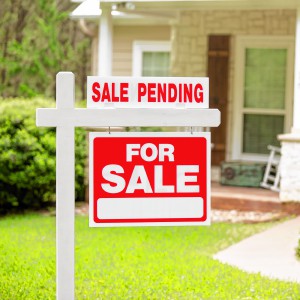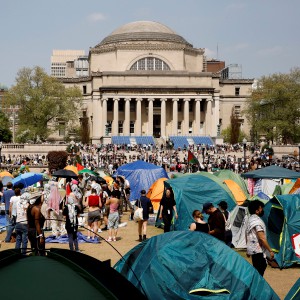Columnist Olin Rose-Bardawil: Missing in Northampton — Progressivism in the present

Olin Rose-Bardawil STAFF PHOTO/CAROL LOLLIS
| Published: 08-08-2024 6:53 PM |
In the past few years, I have heard from a lot of people who have expressed disappointment with the current state of Northampton. There are many who, to quote a recent column writer, believe Northampton is “missing something” [Gazette, July 29]. There are always going to be people who are dissatisfied with the state of their hometowns, even when things are run perfectly. So, a few complaints might not be grounds to believe that Northampton is actually in decline.
But to me, it seems like these sentiments about the state of the city are part of a trend — one that is suggestive of some real declines. A lot of these complaints tend to come from the town’s older residents, though, so I thought I would use this column to express my thoughts about Northampton as a younger resident.
I love this town, and I am very grateful to be able to have grown up here. But like others, I also believe that Northampton is not what it once was in terms of its governance and economy, and also specifically in terms of the attitudes that residents of Northampton hold.
Having lived in Northampton for my entire life, I have been greatly influenced by the political engagement and strong progressive convictions that this city is known for. From a young age, I developed an awareness of issues of poverty, war, and environmental degradation, and much of this I attribute to being surrounded by people in Northampton who are deeply committed to solving these issues.
One cannot say the same of most towns, so it is a strong reflection of Northampton that good political values have been instilled in so many of its young residents like me. While I do not always agree with some Northampton activists’ views on specific issues, I think their commitment to what they believe is very admirable.
When I consider some of the issues that Northampton faces today, though, and which contribute to growing feelings of frustration among Northampton’s residents, I wonder if Northampton’s reputation and history as a hotbed of progressive ideals could be holding us back.
When looking at the way Northampton is currently being governed, it’s not easily apparent that the city is as progressive as it says it is.
Article continues after...
Yesterday's Most Read Articles
 Long-vacant former Faces spot in Northampton gets new tenant
Long-vacant former Faces spot in Northampton gets new tenant
 Here come the sweetness: Four new businesses prepping to open in downtown Northampton
Here come the sweetness: Four new businesses prepping to open in downtown Northampton
 Local ‘Hands Off!’ standouts planned as part of national effort
Local ‘Hands Off!’ standouts planned as part of national effort
 Northampton schools probe staff response to student’s unfulfilled IEP
Northampton schools probe staff response to student’s unfulfilled IEP
 Area property deed transfers, April 4
Area property deed transfers, April 4
 Sabadosa, Velis push for state endometriosis task force to raise awareness about little-known illness
Sabadosa, Velis push for state endometriosis task force to raise awareness about little-known illness
For example, the city failed to adequately increase public school funding despite hearing from countless students and teachers who warned them that doing so would damage an already struggling school system. There is no existing program in place to deal with the city’s mounting homeless crisis, which affects not only the city’s homeless population, but the patrons and small business owners who share the downtown area with them.
While the city is working on a “Resilience Hub” located downtown, this project probably won’t be viable for several years. In the meantime, a city that truly cared about protecting homeless and mentally ill people would find a way to house them.
You might think that this is expecting too much of the city’s government. It is worth noting, though, that the city can take swift and decisive action when it really wants to. Take, for example, the City Council’s decision to hastily cut the city police budget by nearly $900,000 in 2020. This decision was not well discussed or thought out; instead, it was a superficial response to the anger over police violence that was mounting following the death of George Floyd.
This decision is an example of city officials being more interested in maintaining Northampton’s record of progressivism on paper than dealing with issues in a responsible way, irrespective of ideology. Strangely, this interest in appearing “progressive” to the outside world doesn’t seem to hold up when it comes to issues that city residents actually care about, like school funding and the homelessness crisis.
While I do not know what was going through the heads of city councilors when they voted to drastically cut police funding without seeking input from the department or city residents, I imagine their decisions were partly influenced by a concern for how outside news media would perceive Northampton during what was a highly contentious period nationwide.
Conversely, I wonder if the city’s failings when it came to issues like homelessness, public school funding, and support for local businesses were the result of city councilors thinking they could get away with ignoring city residents because they would be shielded by the perception of Northampton as a continual paragon of progressivism.
At the end of the day, Northampton’s record of progressivism does not justify inaction in the present. If anything, the city’s impressive history makes it incumbent for us to seek progress and to be at the forefront of social and political issues going forward. True progress requires dialogue and consideration, though; it does not mean just doing what is trendy or cool.
When asking ourselves “what’s missing” in Northampton, I am sure we could come up with many answers. At the heart of them all, though, is the attitudes that drive our governance. It is clear to me that we have strayed from the meaning of true progress. If we want to get Northampton back on track, maybe we should start by remembering who we are — and who we can be.
Olin Rose-Bardawil of Florence is a student at the Williston Northampton School and the editor in chief of the school’s newspaper, The Willistonian.






 Guest columnist Teresa Amabile: Undermine education, undermine our future
Guest columnist Teresa Amabile: Undermine education, undermine our future Guest columnist Liz Brown: Abortion care is health care
Guest columnist Liz Brown: Abortion care is health care Henry Lappen: Tango is alive and well in the Valley
Henry Lappen: Tango is alive and well in the Valley D. Dina Friedman: Jewish group decries ICE’s crackdown on freedom of speech
D. Dina Friedman: Jewish group decries ICE’s crackdown on freedom of speech
